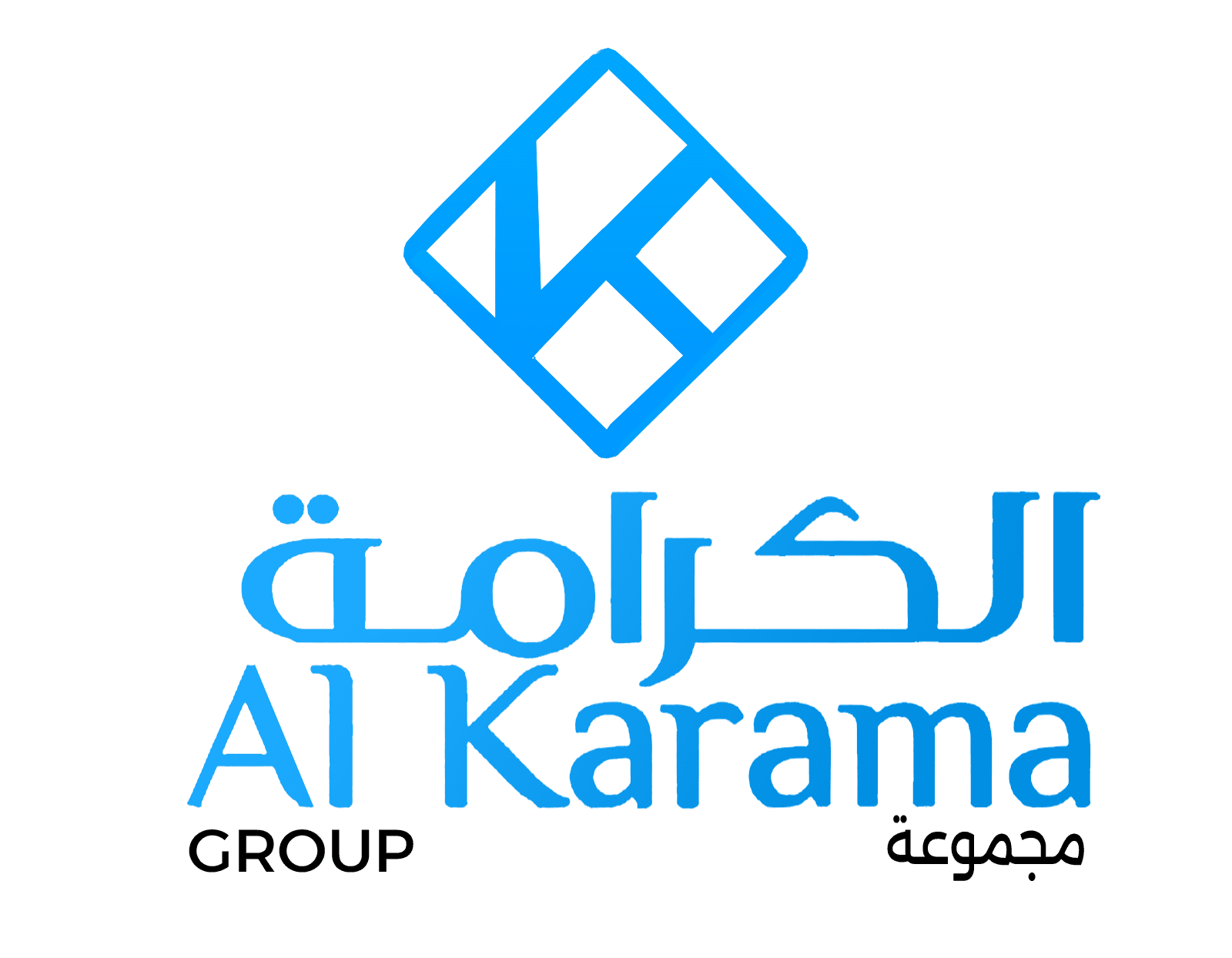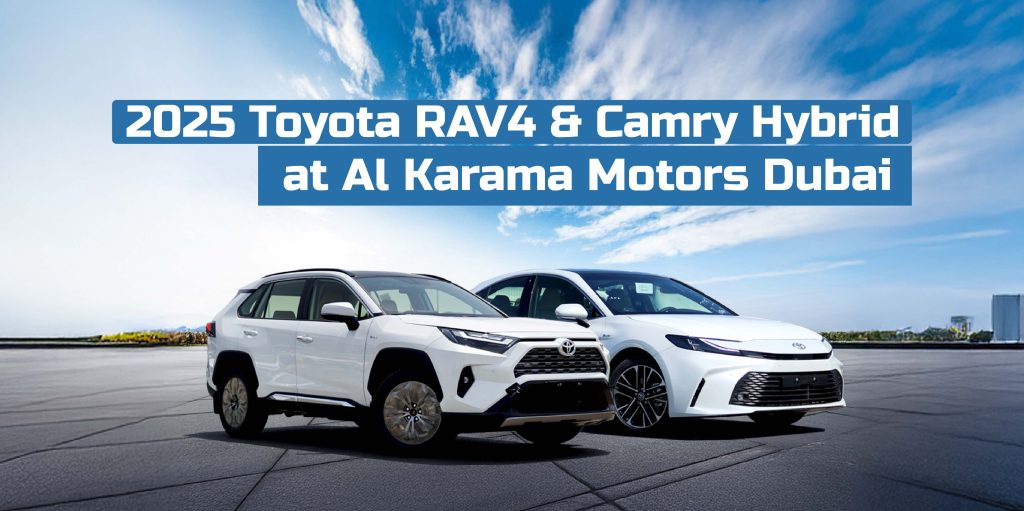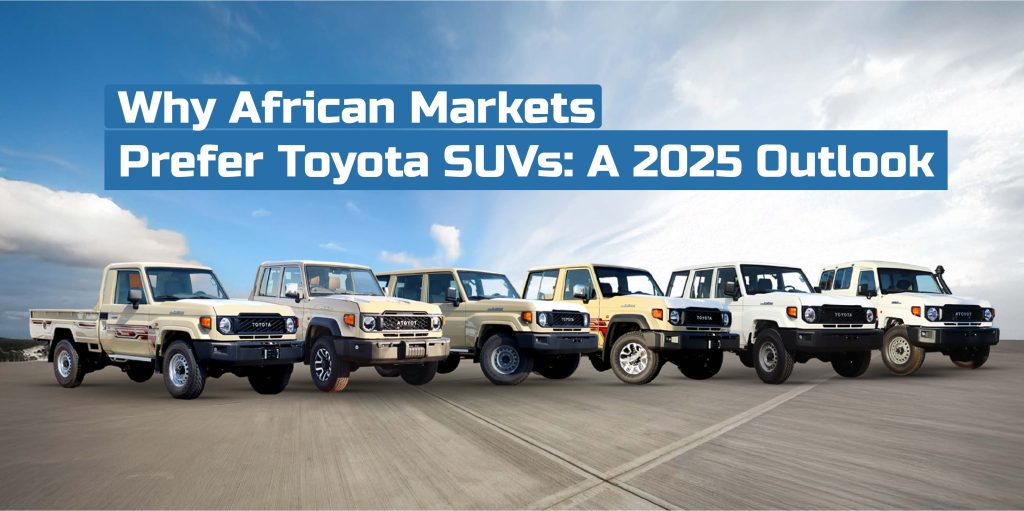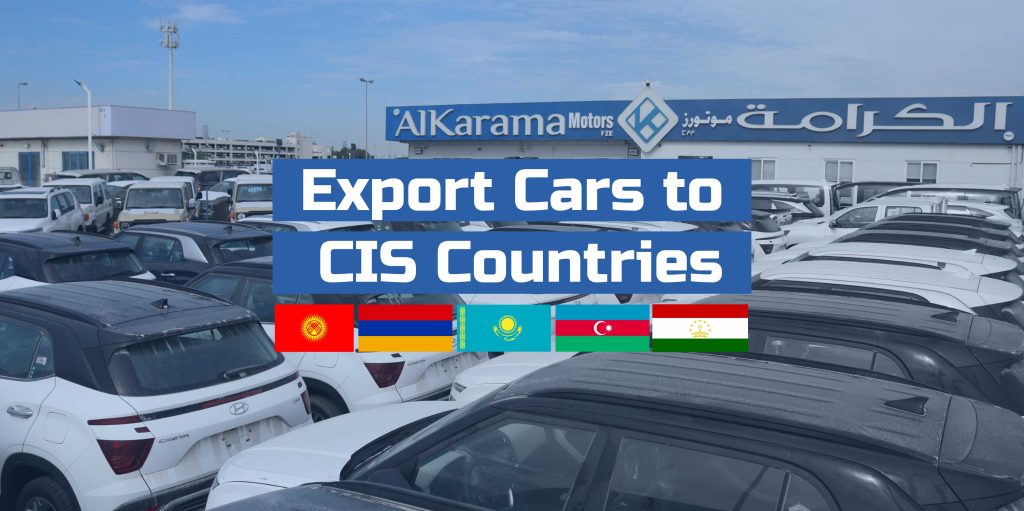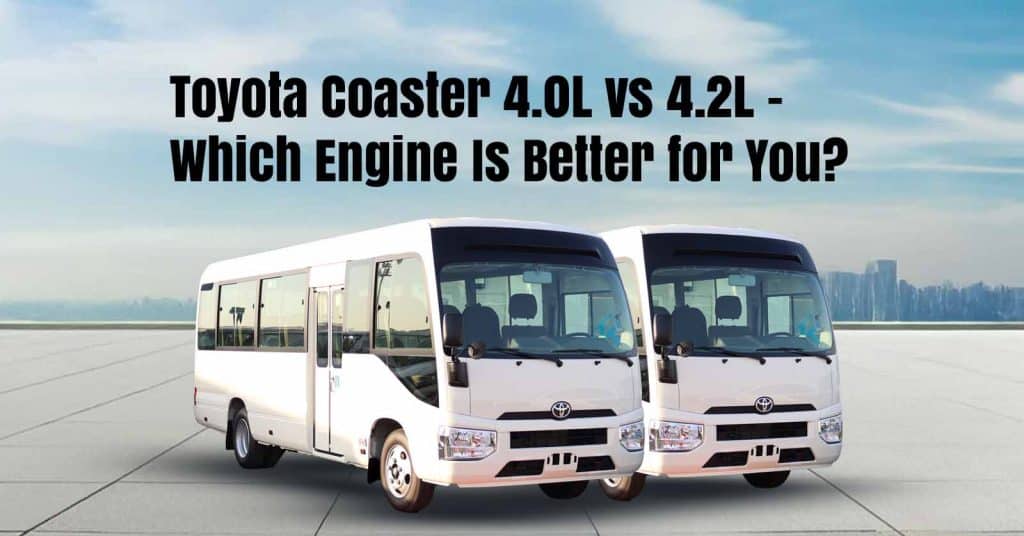
🚌 Toyota Coaster 4.0L vs 4.2L – Full Comparison Guide
When choosing a Toyota Coaster for commercial transport, school use, or tourism, one of the most important decisions is selecting the right engine. Two of the most popular engine variants are the 4.0L turbo diesel and the 4.2L naturally aspirated diesel. While they may seem similar on the surface, they cater to different needs and environments. In this blog, we’ll break down the differences between the Toyota Coaster 4.0L vs 4.2L to help you choose the right one for your business or fleet.
🔧 Engine Specifications
| Specification | Toyota Coaster 4.0L | Toyota Coaster 4.2L |
| Engine Code | 1GD-FTV | 1HZ |
| Displacement | 4.0 Litres | 4.2 Litres |
| Cylinder Count | 4 Cylinders | 6 Cylinders |
| Configuration | Inline-4 (I4) | Inline-6 (I6) |
| Aspiration | Turbocharged | Naturally Aspirated |
| Fuel System | Common Rail Direct Injection | Indirect Injection |
| Fuel Type | Diesel | Diesel |
| Horsepower | 134–150 hp | ~129 hp |
| Torque | ~420 Nm | ~285 Nm |
| Emission Standard | Euro 4 / Euro 5 (varies by region) | Euro 2 / Euro 3 |
⚙️ Performance Comparison
| Feature | 4.0L Turbo Diesel | 4.2L Naturally Aspirated Diesel |
| Acceleration | Quicker due to turbo | Slower, more gradual pickup |
| Load Handling | Excellent torque, great for hills & weight | Adequate for flat routes and light loads |
| Ride Smoothness | Slightly more vibration from I4 | Smoother due to 6-cylinder layout |
| Off-Road Capability | Good, but turbo requires clean air & fuel | Excellent for rugged, dusty environments |
| Noise Level | Quieter and more refined | Louder and more mechanical |
⛽ Fuel Efficiency
| Feature | Toyota Coaster 4.0L | Toyota Coaster 4.2L |
| Fuel Consumption | 7.5 – 9.5 km/l (depending on load) | 6.5 – 8.5 km/l |
| Fuel Tank Capacity | Approx. 95 – 100 litres | Approx. 95 – 100 litres |
| Economy Rating | ✅ More fuel-efficient | ❌ Less efficient |
🛠️ Maintenance & Reliability
| Feature | Toyota Coaster 4.0L | Toyota Coaster 4.2L |
| Maintenance Cost | Slightly higher (modern components) | Lower (simpler engine design) |
| Parts Availability | Readily available | Very common in rural and developing regions |
| Durability | High – but needs clean fuel | Extremely rugged, built for tough conditions |
| Ease of Repair | Requires diagnostic tools | Can be serviced by basic mechanics |
🌍 Emissions & Environment
| Feature | Toyota Coaster 4.0L | Toyota Coaster 4.2L |
| Emissions Level | Euro 4 / Euro 5 compliant | Euro 2 / Euro 3 compliant |
| Environment-Friendly | ✅ Suitable for urban/regulated areas | ❌ May not meet urban emission standards |
| Future-Proof | ✅ Better for long-term compliance | ❌ May be phased out in strict markets |
📌 Ideal Use Case
| Scenario | Best Choice |
| City transportation (Dubai, UAE) | ✅ 4.0L Turbo |
| Mountain or off-grid travel | ✅ 4.2L NA |
| Tourism and long-distance comfort | ✅ 4.0L Turbo |
| Rural school bus or NGO use | ✅ 4.2L NA |
🏁 Final Verdict: Which Toyota Coaster Engine is Better?
- Choose the Toyota Coaster 4.0L if:
- You want better fuel efficiency, lower emissions, and modern features.
- You operate in urban or international markets with strict environmental laws.
- You prioritize performance and torque for full-capacity trips.
- Choose the Toyota Coaster 4.2L if:
- You need a simple, rugged, and ultra-reliable engine.
- You’re operating in remote or off-road environments.
- You want an engine that’s easy to maintain without electronics.
🏷️ Final Thoughts Both the Toyota Coaster 4.0L and 4.2L are incredibly reliable, but each has its niche. Whether you prioritize modern efficiency or proven durability, Toyota has an option for you.
Compare
